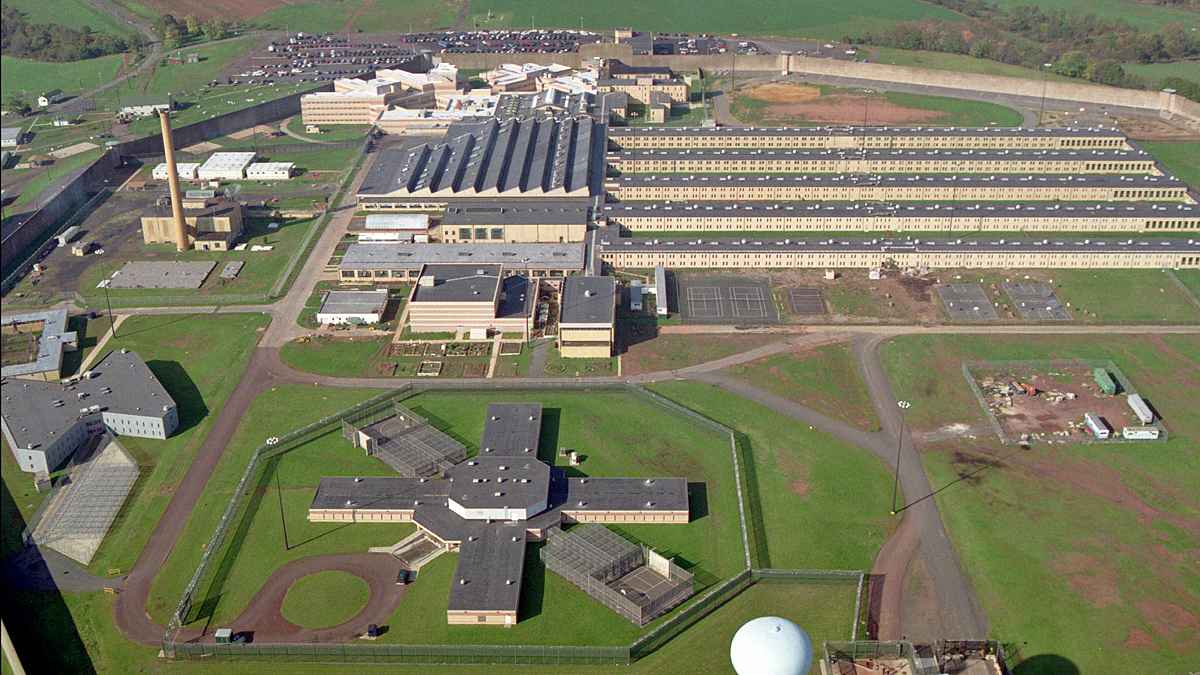Claiming continued treatment delays for mentally ill defendants, ACLU takes Pa. back to court

Aerial view of Graterford State Prison in Southeastern Pennsylvania. (Chris Gardner/AP Photo)
The ACLU of Pennsylvania is resuming a previously settled lawsuit demanding treatment for hundreds of people in state prisons who have been declared mentally incompetent to stand trial because of psychiatric illness.
More than 260 of those prisoners are languishing in Pennsylvania jails when they should be getting legally mandated treatment, said Vic Walczak, the legal director of the ACLU of Pennsylvania. The number represents an increase of nearly 50 inmates since the organization settled its class-action lawsuit against the Department of Human Services in January 2016.
“These are very, very sick people,” Walczak said. “By law, they’re not allowed to be in jail, and yet they’re sitting in jails for a year or more before they are accepted at a hospital or a mental health facility where they can get appropriate treatment.”
In a few cases, the prisoners — who have yet to be tried on the charges against them — have waited more than two years before getting a bed in a state psychiatric hospital, Walczak said.
Pennsylvania likely has the worst treatment delays for these defendants of any state in the country, he contended.
Federal courts have ruled that these defendants should be jailed for no longer than seven days before being transferred into treatment necessary to restore their competency, so they can be tried in court.
But the situation has only gotten worse since the state agreed to take action in last year’s settlement agreement, according to the ACLU.
A representative of the Department of Human Services said it cannot comment on specific litigation, but that the state has taken several steps to reduce wait times and cut down on the backlog — including spending $17.6 million to create about 150 new treatment slots.
The ACLU said the department hasn’t done enough for prisoners who urgently need treatment and doesn’t know why more of those with severe mental illness are now in jail even after increasing treatment capacity.
Walczak said that jail is harmful to the people he represents. Many of them are psychotic and can’t control their behavior.
“When you’re in a prison, you get punished for that,” he said. “And so a lot of these folks end up in solitary confinement, which just, frankly, makes their mental health situation that much worse.”
The ACLU has asked the court to demand that the state open 100 new treatment beds over the next six months and hire independent consultants to analyze why the long waits for psychiatric care persist.
WHYY is your source for fact-based, in-depth journalism and information. As a nonprofit organization, we rely on financial support from readers like you. Please give today.

